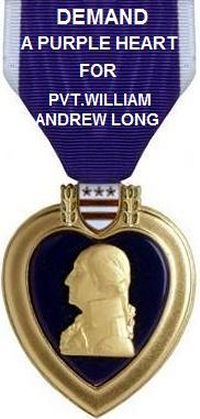What Is Ramadan?
This coming weekend on October 12-14, for the first time ever the Empire State Building in New York City will be bathed with green lights, the color closely associated with Islam, so as to commemorate Eid ul-Fitr, the end of Ramadan. Exactly what is being celebrated just blocks from the World Trade Center, the site of the horrific 9/11 terrorist attack on America's shores? To understand why such a commemoration of Eid ul-Fitr should be unacceptable to all those who love America, a short history lesson is in order.
 Despite the feel-good recent kumbaya honorings on the part of Congress, the Pentagon (led by Chaplain Saifulislam, whose name, by the way, translates as "sword of Islam"), and President Bush, Ramadan involves more than prayers, fasting, and the giving of alms — all of which are part of the month long observance but which are also the outward signs of another message. By literal definition, of course, Ramadan commemorates Allah's "revealing" the Qur'an to Muhammad. But history clearly indicates that the "revelations" from Allah to Muhammad began around 610, some fourteen years earlier than 624.
Despite the feel-good recent kumbaya honorings on the part of Congress, the Pentagon (led by Chaplain Saifulislam, whose name, by the way, translates as "sword of Islam"), and President Bush, Ramadan involves more than prayers, fasting, and the giving of alms — all of which are part of the month long observance but which are also the outward signs of another message. By literal definition, of course, Ramadan commemorates Allah's "revealing" the Qur'an to Muhammad. But history clearly indicates that the "revelations" from Allah to Muhammad began around 610, some fourteen years earlier than 624.-------------
Those earlier passages, sometimes referred to as the Meccan verses, are the oft-quoted peaceful verses in the Koran. Contrary to what one might expect, however, the last day of Ramadan does not celebrate the actual date of the earliest revelations of Allah to Muhammad but rather the Battle of Badr, the first significant military victory by the forces of Muhammad.
The Battle of Badr of March 17, 624, is one of the few military conflicts specifically mentioned in the Qur'an and holds a great deal of significance in Islam. Eid ul-Fitr, the final portion of Ramadan and which the lighting of the Empire State Building will recognize this weekend, has as its origin the aforementioned battle. Furthermore and most importantly, this battle marked the turning point for Islam, both politically and ideologically.
Having earlier fled to Medina along with followers who accepted him as their prophet whereas most of the tribes of Mecca did not, early on that morning in 624 Muhammad got word that a rich Quraish caravan from Syria was returning to Mecca. He therefore assembled the largest army he had ever been able to muster, some 300 men, with the original intent of raiding the caravan. After his men successfully overtook the caravan and brought back the booty, Muhammad then conveniently received a new "revelation" from Allah — a "revelation" which not only included rejoicing in having captured an enemy's caravan but which also called "proved" that Muhammad had been preaching the true way all along. Fulfilling Destiny, Muhammad and his forces proceeded to trounce the Quraish as punishment for having earlier rejected the prophet's teachings. From this source:
In the name of Allah, the Beneficient, the Merciful.In other words, victory at the Battle of Badr proved to Muhammad and his adherents that Islam should from that time forth take on a militant aspect because such is the will of Allah. From the day of the Battle of Badr on, the tone of the verses in the Qur'an changed. These more recent revelations, sometimes referred to as the Medinan verses, abrogated the earlier and peaceful Meccan ones. Because preaching and tolerance had not brought Muhammad the following which he needed in order to establish himself and Islam as political forces to be reckoned with, Allah, via a military victory, showed the prophet a more effective way to spread Islam. Therefore, Muhammad's victory at the Battle of Badr symbolizes, for at least some Muslims, both the way to bring about the will of Allah and the will of Allah itself.
The battle of Badr was the most important among the Islamic battles of Destiny. For the first time the followers of the new faith were put into a serious test. Had victory been the lot of the pagan army while the Islamic Forces were still at the beginning of their developments, the faith of Islam could have come to an end.
No one was aware of the importance of the outcome of the Battle as the Prophet (S.A.W.) himself. We might read the depth of his anxiety in his prayerbefore the beginning of the Battle when he stood up supplicating his Lord:God this is Quraish. It has come with all its arrogance and boastfulness, trying to discredit Thy Apostle. God, I ask Thee to humiliate them tomorrow. God, if this Muslim band will perish today, Thou shall not be worshipped.[...]
This battle laid the foundation of the Islamic State...
The underlying meaning of those green lights casting their glow on the Empire State Building this coming weekend is all about submission to Islam and to the will of Allah. Ah, the dhimmitude!
Labels: Battle of Badr, Dhimmitude, History, Islam, Islamification, Ramadan


















<< Home